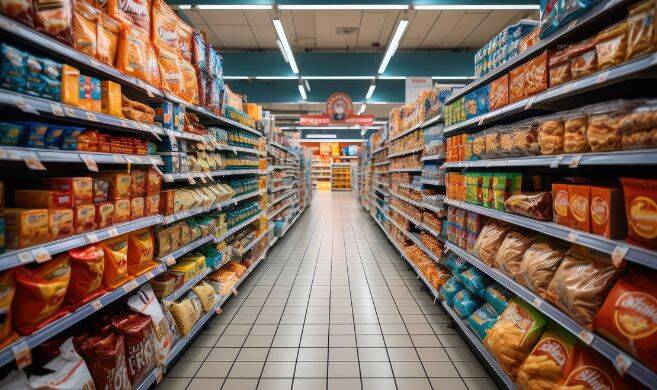This question was central to a rigorous Master's thesis titled "Snacking to Extinction: The Ultra-Processed Food Industry in the Climate Transition", on the Fast-Moving Consumer Goods (FMCG) industry, authored by Aishwarya Karunakar under the guidance of Professor of Information Systems and Operations Management Sam Aflaki. Karunakar meticulously examined the environmental and social impact of UPFs across their value chain, supplemented by comprehensive industry interviews, and interviewed experts from leading retail companies who requested for anonymity. This multi-pronged approach provided a realistic view into the industry's practices and the potential paths to sustainability.
Our love for convenience is propelling an industry that contributes to a third of global emissions.
The research revealed that our growing global appetite for UPFs, complete with additives and preservatives, places undue pressure on the land-energy-water nexus. As one industry expert insightfully noted, “Corporates have a lot of tried and tested products that are safe… they want to keep doing it as it is their foundation.” This emphasizes the urgency for more sustainable agricultural practices, such as crop diversification and ingredient selection while respecting local ecosystem health.
The study also spotlighted the production stage, pinpointing a clear lack of data that hampers sustainable practices. One expert remarked, “Data contains huge value for companies today... willingness to share data today in the market is really low... and the willingness to pay for data points is uncertain." The gap in data underscores the critical need for greater transparency and evidence-based decision making.
Meanwhile, the retailing and consumption stage presents its own paradox. While UPFs are linked to health issues like obesity, they also fortify food products with essential nutrients. Balancing 'nutrients-to-limit' with 'nutrients-to-promote', while reducing additives, emerges as a key priority. However, consumer behavior adds another layer of complexity, as one expert noted, "In theory, consumers want whole foods... What are people actually buying and doing? They buy things that are already made..."
We propose a scoring system for product formulations based on environmental and social criteria, which could guide operational transformations.
The road to sustainability isn't a solitary journey. It requires collective action from all stakeholders, including farmers, suppliers, food scientists, product development teams, and consumers. An integral part of the thesis proposes a scoring system for product formulations based on environmental and social criteria, which could guide operational transformations.
As the research highlighted, striking a balance between environmental, social, and economic costs is a daunting task. However, it’s a challenge we must face head-on for a just transition. One expert aptly captured the essence of this journey, stating, "It is a carrot and stick situation today. The stick is the legislation, and the carrot is the consumer’s willingness to pay."
Karunakar’s research showcases that our daily snacking habits don't have to lead us to extinction.
In essence, Karunakar’s Master's thesis, filled with in-depth analysis and firsthand industry insights, paints a vivid picture of the ultra-processed food industry's path to sustainable development. It showcases that our daily snacking habits don't have to lead us to extinction but can instead contribute to a healthier and more sustainable world. This compelling piece of research serves as a crucial call to action for all – the industry, regulators, and consumers – to join hands in creating a more sustainable future, one snack at a time.










